
Hazem Salem Dmour
General Manager
The Director General of the Institute is a researcher specializing in international relations and strategic studies, and is a researcher specializing in combating violent extremism, human security, fourth-generation warfare.
Writings by
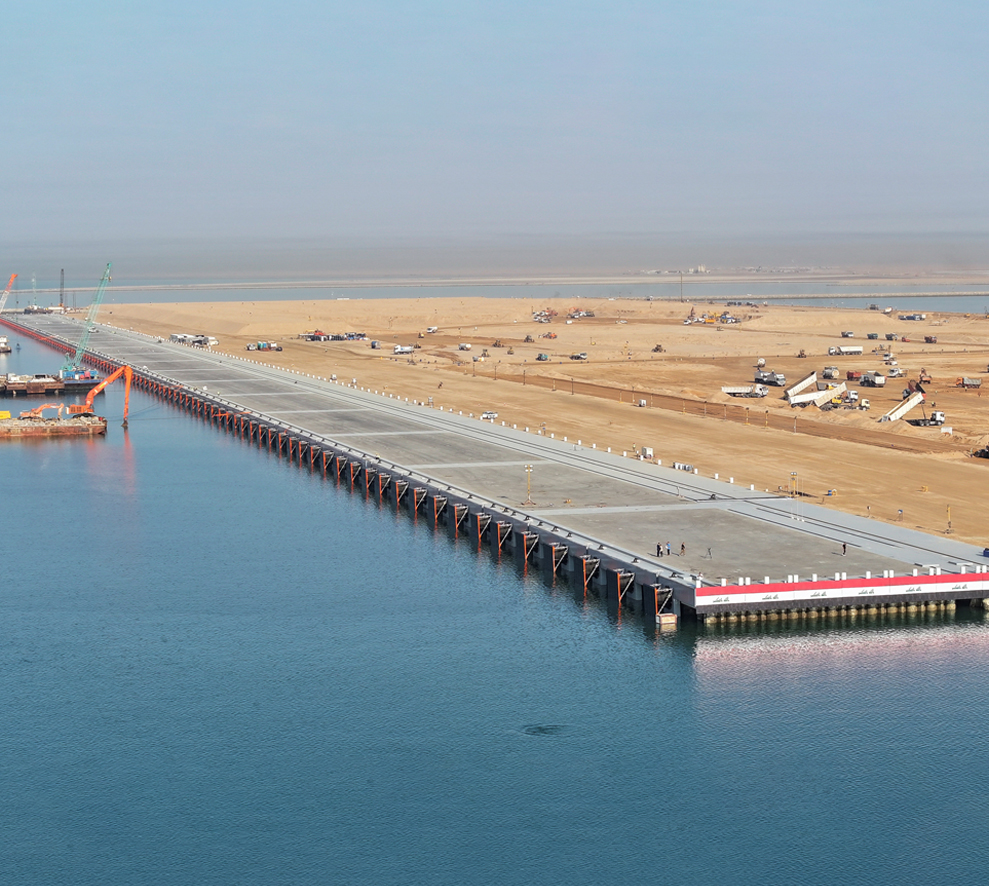
Regional Trends
Iraq Between Geopolitical Challenges and Strategic Opportunities
Recent developments in Iraq indicate that the country stands on the threshold of a profound geopolitical and economic transformation. The recent elections are seen as a pivotal moment for reshaping regional power balances. With its vast oil and gas resources and its strategic location linking the Gulf to Turkey and Europe, Iraq is gradually becoming an arena for geo-economic competition among Iran, Turkey, and the Gulf–U.S. axis, as well as Western powers. While global actors race to invest in ports, corridors, and energy projects, Iraq’s future remains contingent on its ability to harness this competition to build stability and sustainable development.
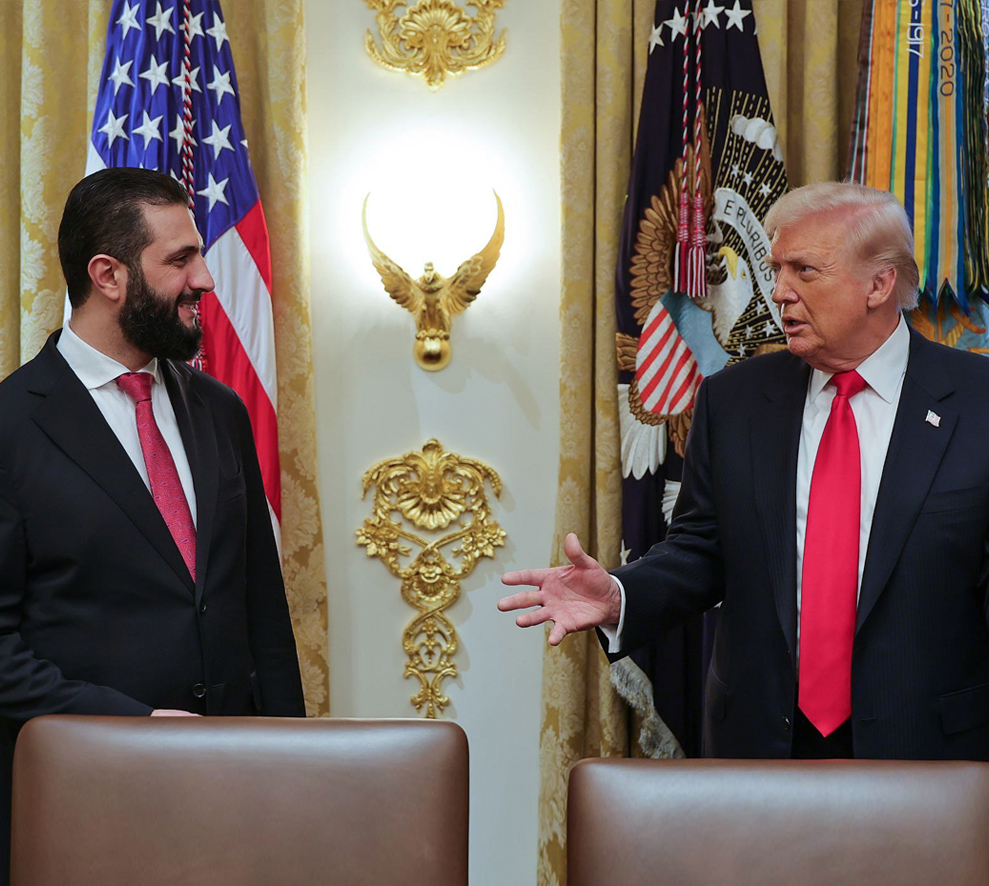
International and Global Trends
Real clear world: A former terrorist inside the white house
This article examines the unprecedented decision to welcome a former jihadist—long designated as a terrorist by the United States—into the White House. It traces his trajectory from al-Qaeda operative to interim president of Syria, raising urgent questions about a dramatic shift in U.S. foreign policy. The piece challenges readers to consider the consequences of legitimizing a figure whose past is inseparable from decades of extremist violence.
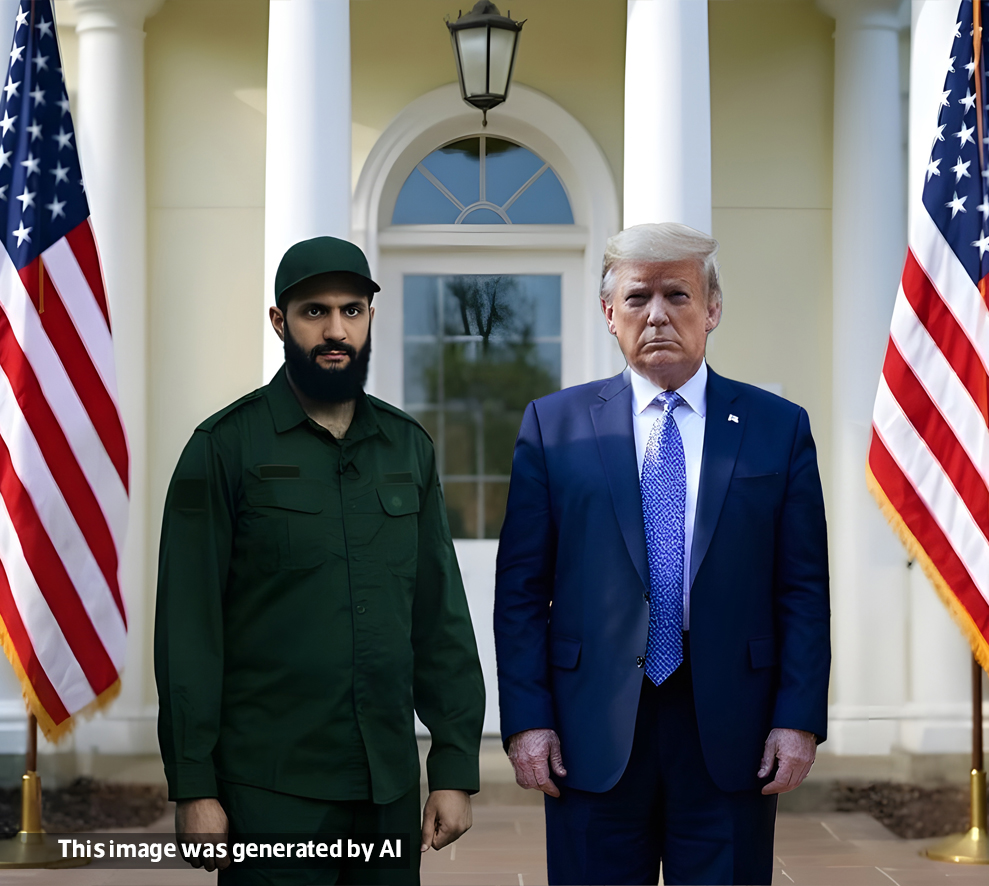
International and Global Trends
NYT: The President and A Former Terrorist Meet at the White House
This article, published in The New York Times on November 9, 2025, in which the GM of STRATEGIECS Institute examines Ahmed al-Sharaa (known as al-Julani)’s visit to the White House, highlighting the grave implications of this event for regional and strategic security, as well as for the United States itself. It underscores how al-Julani’s background—rooted in global terrorism—and the legitimization of an extremist model of governance achieved through military takeover and disguised as pragmatism represent new instruments for transnational terrorist organizations seeking to undermine the very concept of the nation-state.
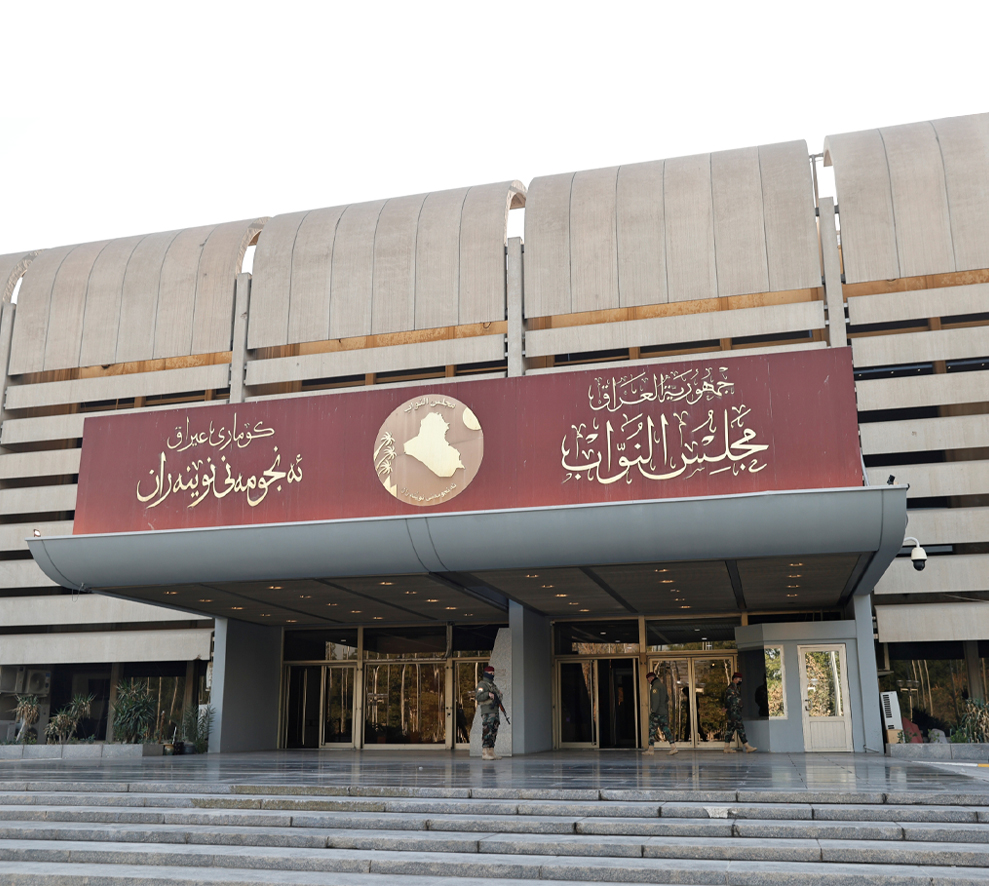
Arab policy
Will the Shifting Orientations of Iraqi Voters Decide the Upcoming Elections?
As the parliamentary elections draw near, electoral campaigns must be built upon the tangible progress already achieved and address the aspirations of an Iraqi society that has indeed changed—a society no longer willing to tolerate policies of denial or procrastination.
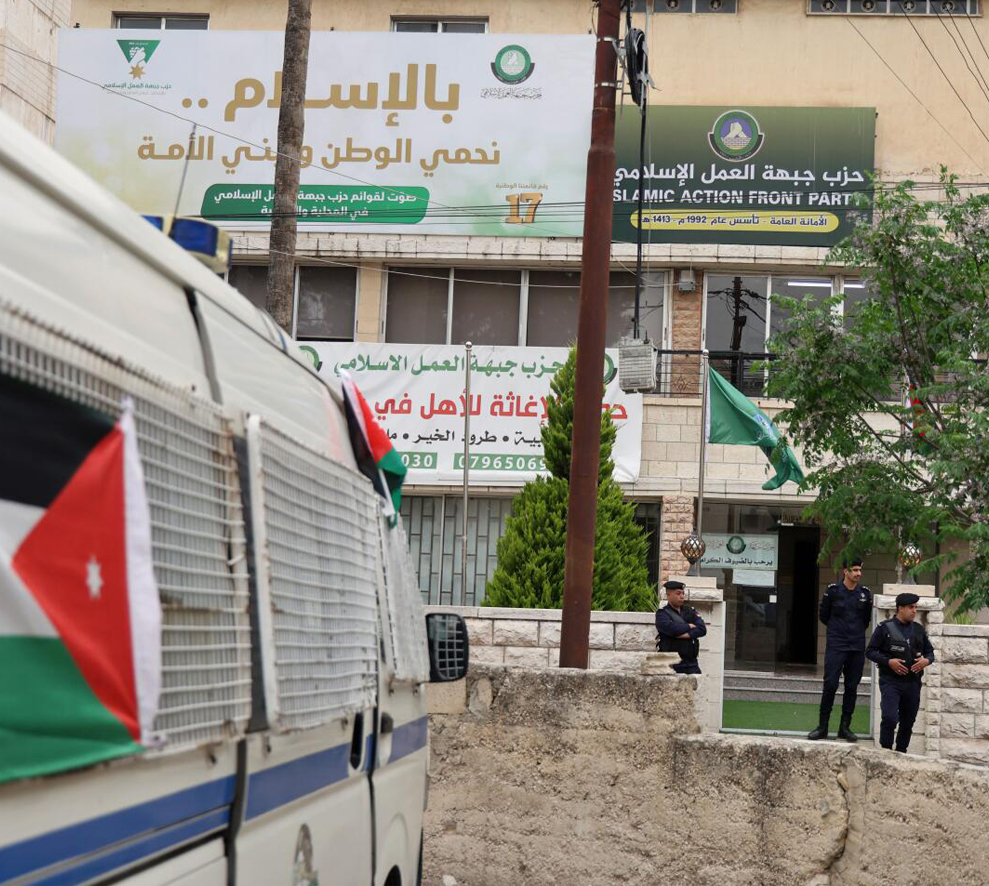
Countering Terrorism and Extremism
The Decision to Ban the Muslim Brotherhood in Jordan: the Hand of the Law Against Transnational Ideologies
This paper examines the Jordanian government’s decision April 23 to ban the Muslim Brotherhood group in response to growing security concerns following the discovery of affiliated cells planning to threaten Jordan’s national security. It outlines three potential post-ban scenarios: maintaining the ban solely on the group, extending it to include the Islamic Action Front party, or eradicating both entities entirely. The paper also highlights the legal and security challenges associated with each scenario.
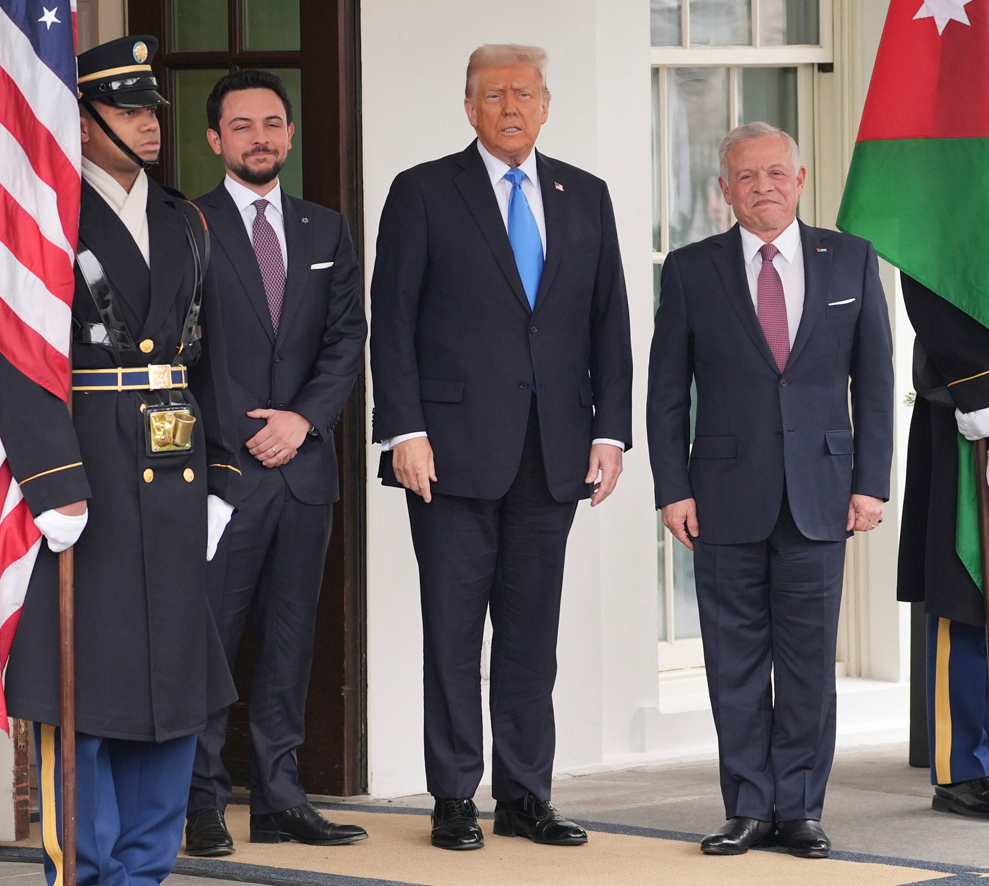
Foreign Policy and Diplomacy
The King’s Visit to Washington: The First Step in the Race to Reject Displacement
Jordan has prior experience dealing with U.S. President Donald Trump during his first administration, which showed a tendency to liquidate the Palestinian issue without considering the fundamental principles of the Palestinian cause or the American foreign policy toward it. Given the changing realities facing the Gaza Strip, the Middle East, and the international community in general, Jordan’s position today seems to be based on more precise calculations compared to the approach during Trump’s first administration. This is especially true given that the threats today encompass all Palestinian territories, not just the Gaza Strip.
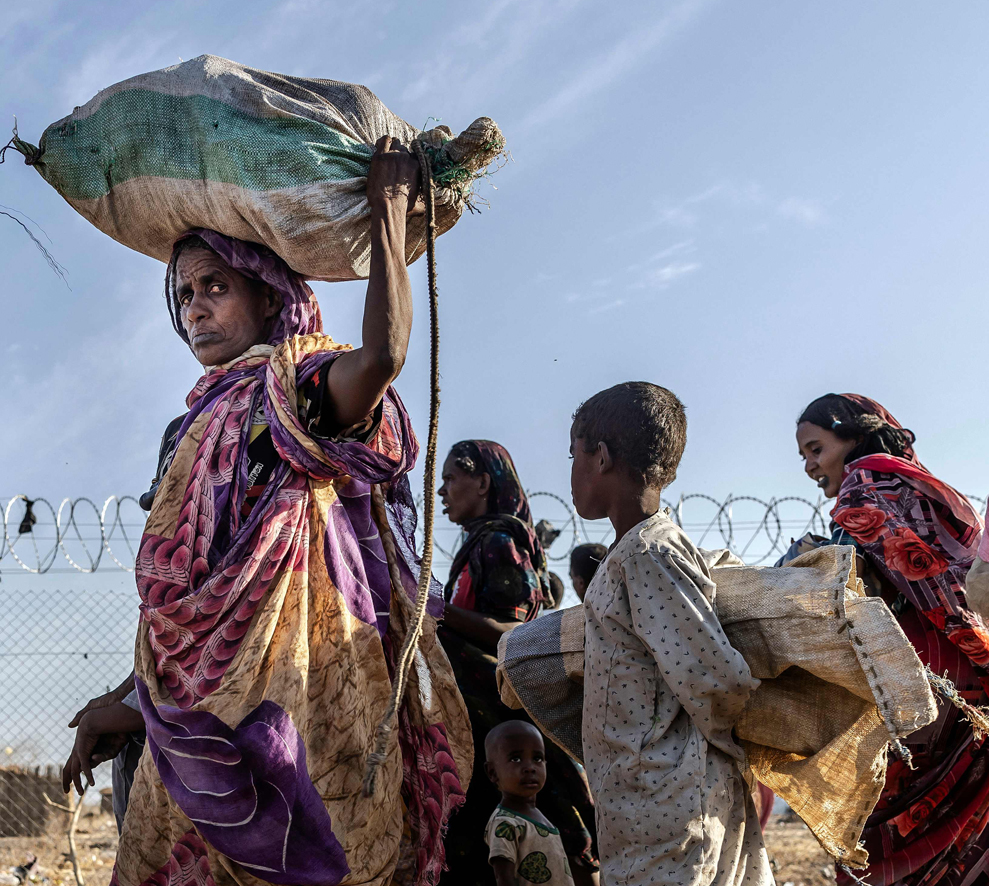
Countering Terrorism and Extremism
Sudan: The Country Hijacked by Islamists and Targeted for Burial by Iran
This story documents firsthand testimonies from individuals within Sudan who are well-informed about the increasing Iranian influence in their country. We refer to them as "Al-Hajj," "The General," and "The Diplomat" to protect their identities and ensure their safety. These individuals unanimously expressed concerns in their testimonies about the dangers of Iranian influence on their country's future stability, the prospects for a ceasefire between the conflicting parties, and the risks this growing influence poses to regional security in the Middle East and Africa, in a way that cannot be ignored.
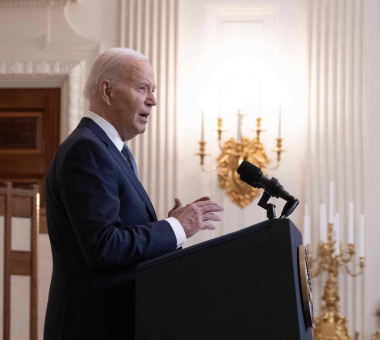
Regional Trends
Will Biden’s Plan Succeed in Achieving Stability in the Middle East?
U.S. President Joe Biden’s plan for stability in the Middle East sets a clear initial goal —a ceasefire—and an explicit ultimate aim: sustainable cessation of the war in Gaza. However, the path of the plan from its implementation to its completion faces several complications and contains gaps that could disrupt it.

Countering Terrorism and Extremism
How Can the Attacks on Crocus be Interpreted?
This position assessment discusses the attacks that targeted the Crocus City Hall in Russia, along with the controversy surrounding the party responsible for them. The accusations range from Russia blaming the West to the terrorist organization “ISIS” claiming responsibility.

International and Global Trends
Zero-Sum Game: Belated Awakening of the 60-Year-Old Munich Security Conference
The 2024 Munich Security coincided with high levels of uncertainty about the future of the international system, developments in the Ukrainian war, the challenges associated with the war in the Gaza Strip, and the relationship between the countries of the North and the South.
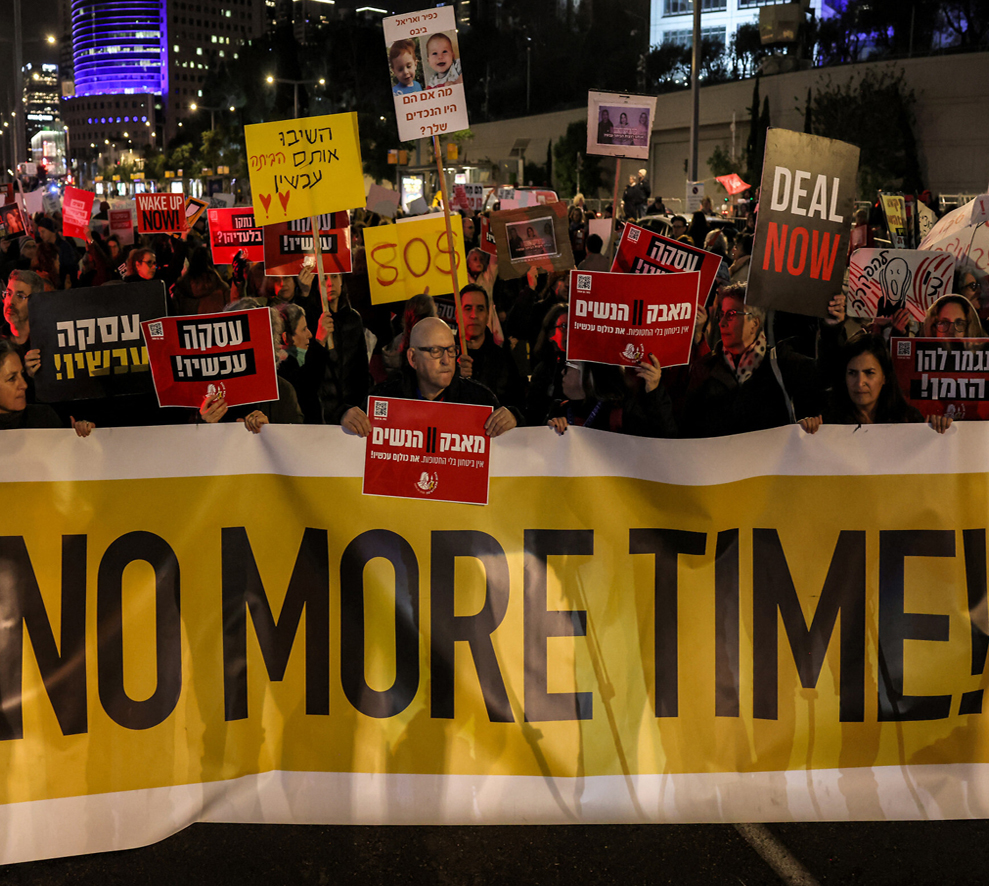
The Palestinian–Israeli Conflict
Gaza War: Complex Considerations, Elusive Truce, and No End in Sight
The war in Gaza has reached a critical juncture, intensifying in a way that concerns mediators and neighboring countries, with implications for the broader international community. This escalation is evident in negotiations for a possible new truce, where the demands and priorities of the parties involved, along with the complex considerations of the mediators, are prominently featured. These intricate dynamics have led to multiple parallel tracks for both the war and the truce efforts, which this paper aims to explore.
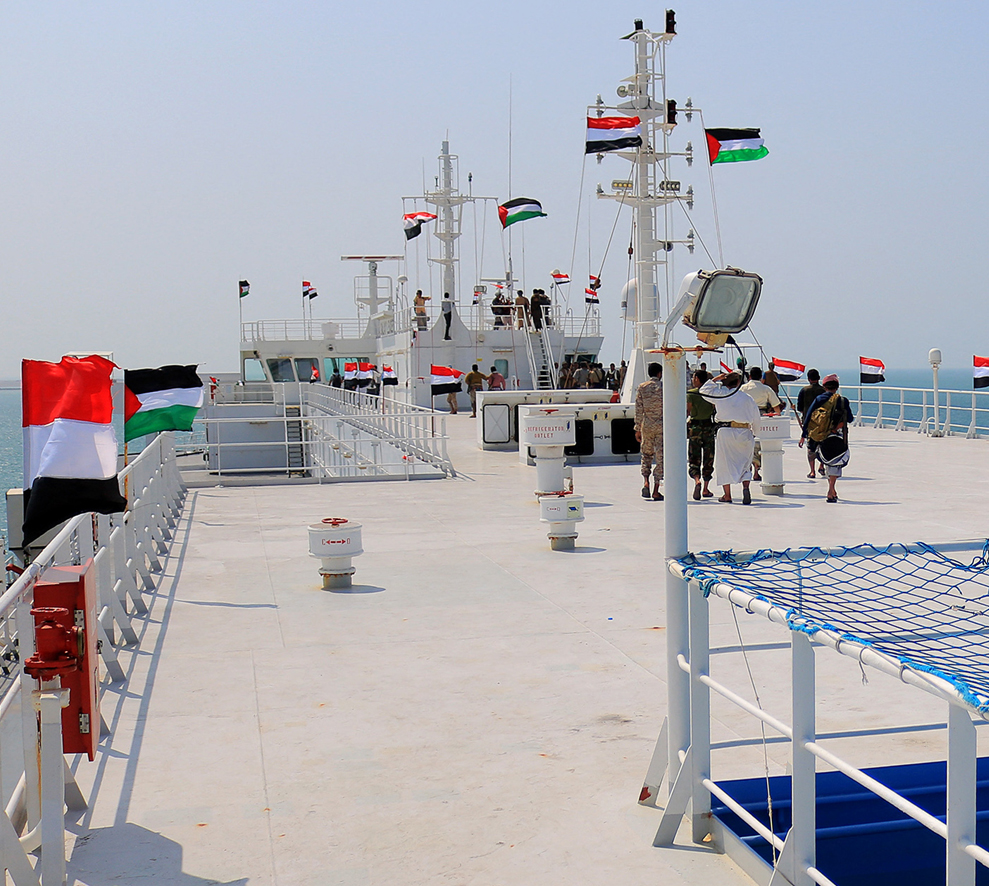
Emerging Threats and Non-Traditional Security
The Escalation of Houthis and the Repercussions on the Region
This policy analysis addresses the escalation of the Houthi attacks in the Red Sea and its effects on Arab countries. This analysis also touches on the Operation Prosperity Guardian coalition launched by the United States with the participation of more than 20 countries to protect international shipping lanes.
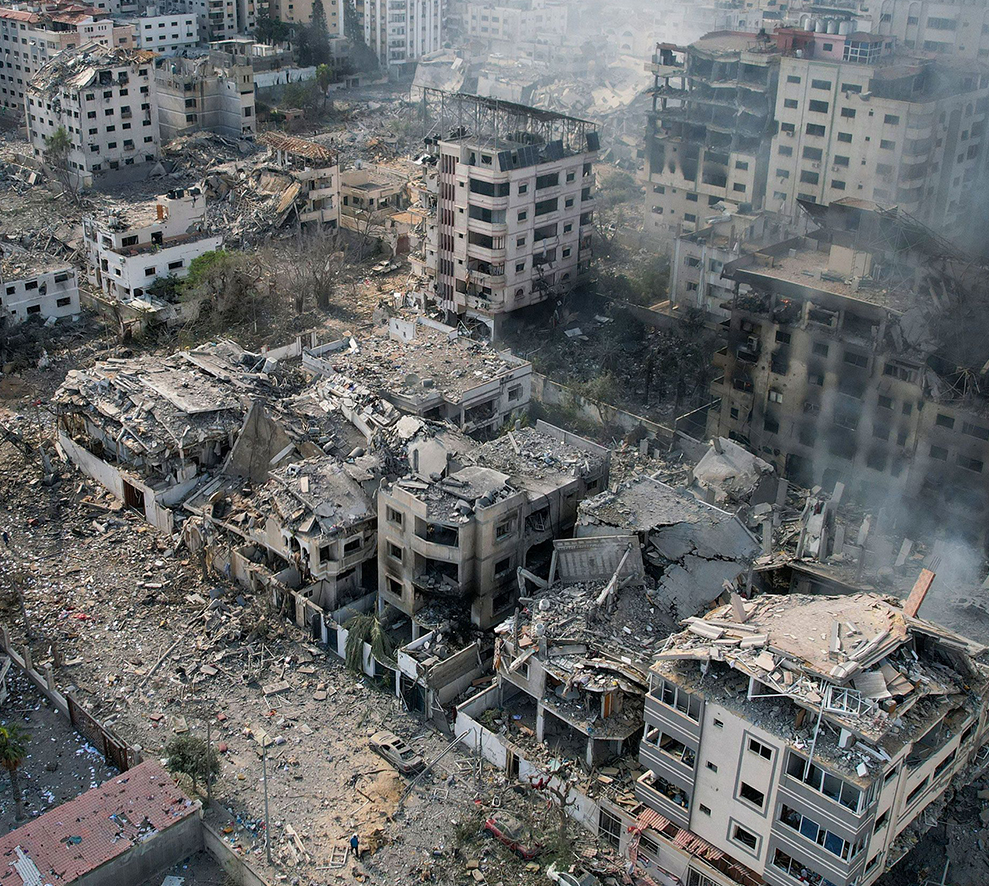
The Palestinian–Israeli Conflict
Possible Outcomes of the Israeli War on the Gaza Strip After the Truce
The Israeli war on the Gaza Strip is managed according to changing rules, depending on the military situation, the local reactions of Hamas and Israel, and foreign pressures. This means that the war will not proceed according to any prepared plans, decisive objectives, or rules. Therefore, this paper addresses the possible outcome of the war after the truce and the variables that define such the war.
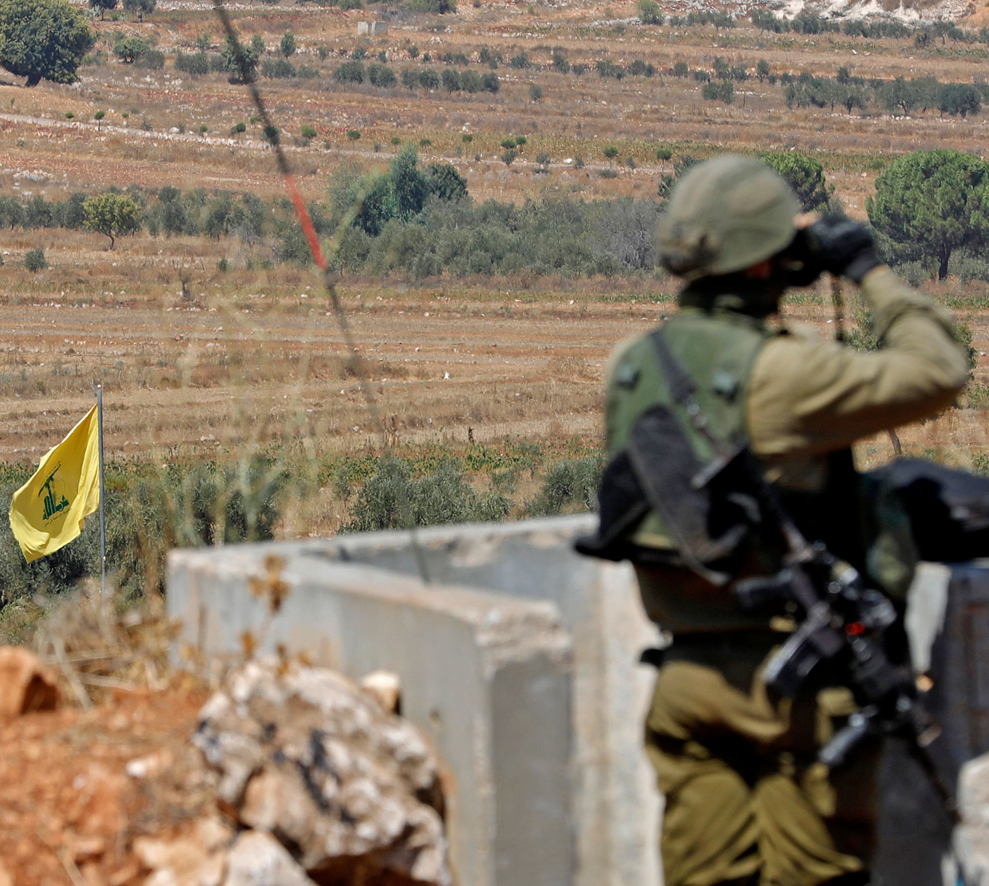
Regional Trends
The Unification of the arenas: Strategy Tracks in the War Between Hamas and Israel
The position of Iran and its allies has been in flux. At times, they issue rhetorical threats through the media; at other times, they exercise tactical restraint. However, Iran and all elements within the so-called “Axis of Resistance” coalition are directly involved in the ongoing conflict in Gaza. This paper aims to explore the Axis’s stance on the ongoing war and the potential ways in which the coalition might engage in it.
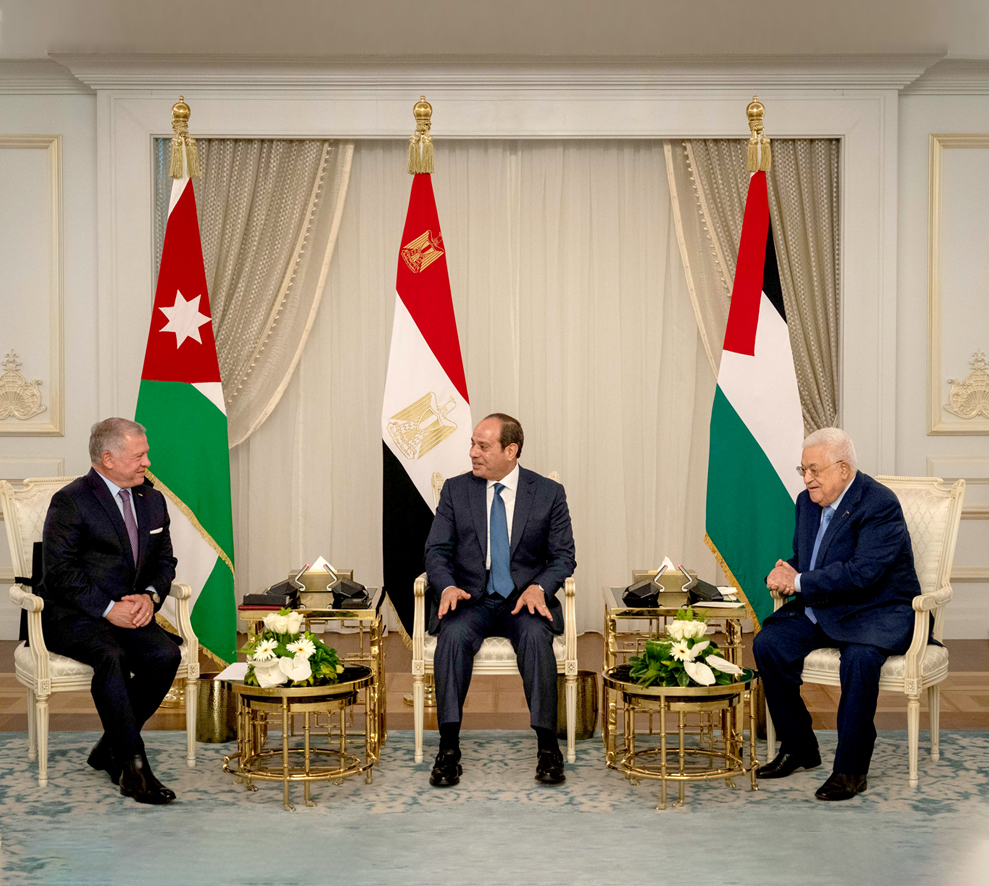
Arab policy
The Tripartite Summit of El-Alamein and the Reorganization of Affairs in Palestine
This position assessment discusses the tripartite summit between the leaders of Jordan, Egypt, and the Palestinian Authority in the Egyptian city of El-Alamein. The summit emphasized the priority of international and Arab legal references for resolving the Palestinian cause. This paper also addresses the future of the Palestinian Authority in light of the crises facing the West Bank and Gaza Strip.
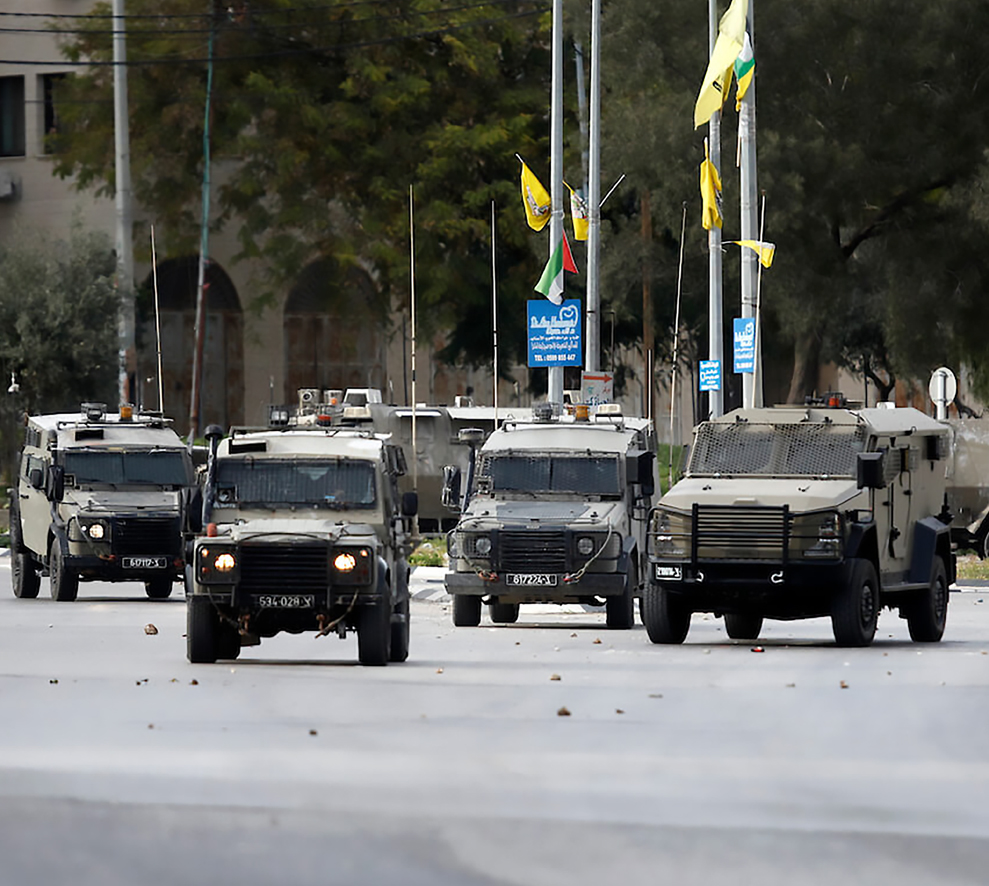
The Palestinian–Israeli Conflict
What Comes after the Israeli Invasion of Jenin?
This assessment deals with the recent Israeli invasion of the West Bank City of Jenin, its refugee camp, and the circumstances accompanying the invasion. It also discusses the political and security dimensions behind it, delving into the features of strengthening the Palestinian Authority’ control over the northern West Bank.
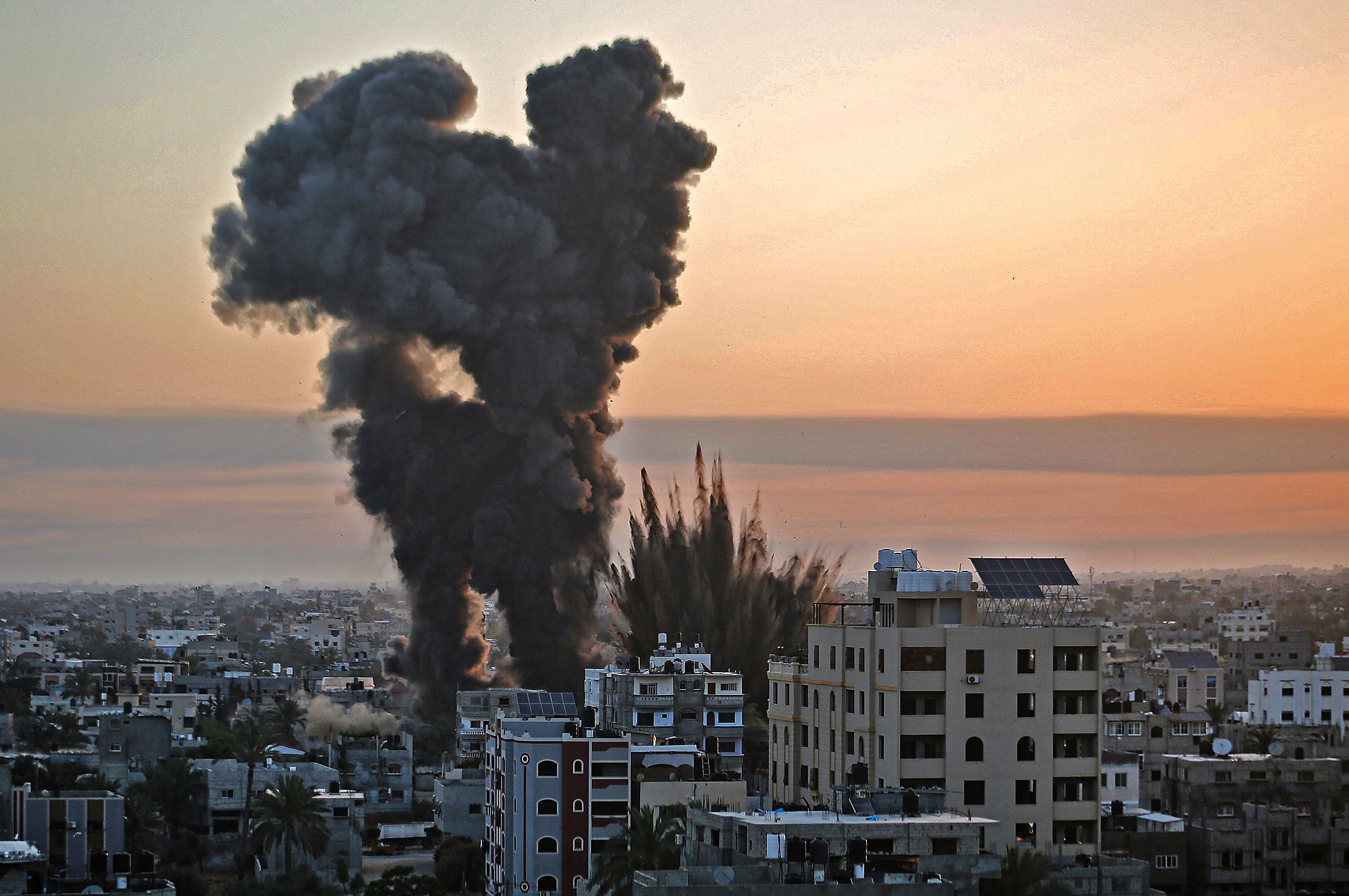
The Palestinian–Israeli Conflict
Another Round of Escalation to Change the Equation of the “Unification of the arenas”
This paper discusses the recent escalation between the Al-Jihad al-Islami and Israel, which ended with the announcement of a ceasefire between the two parties on May 13. The paper also examines the ““Unification of the arenas”, strategy launched by the Al-Jihad al-Islami in mid-May 2021, as well as Israel’s efforts to dismantle this strategy by adopting a “disintegration of arenas” strategy.
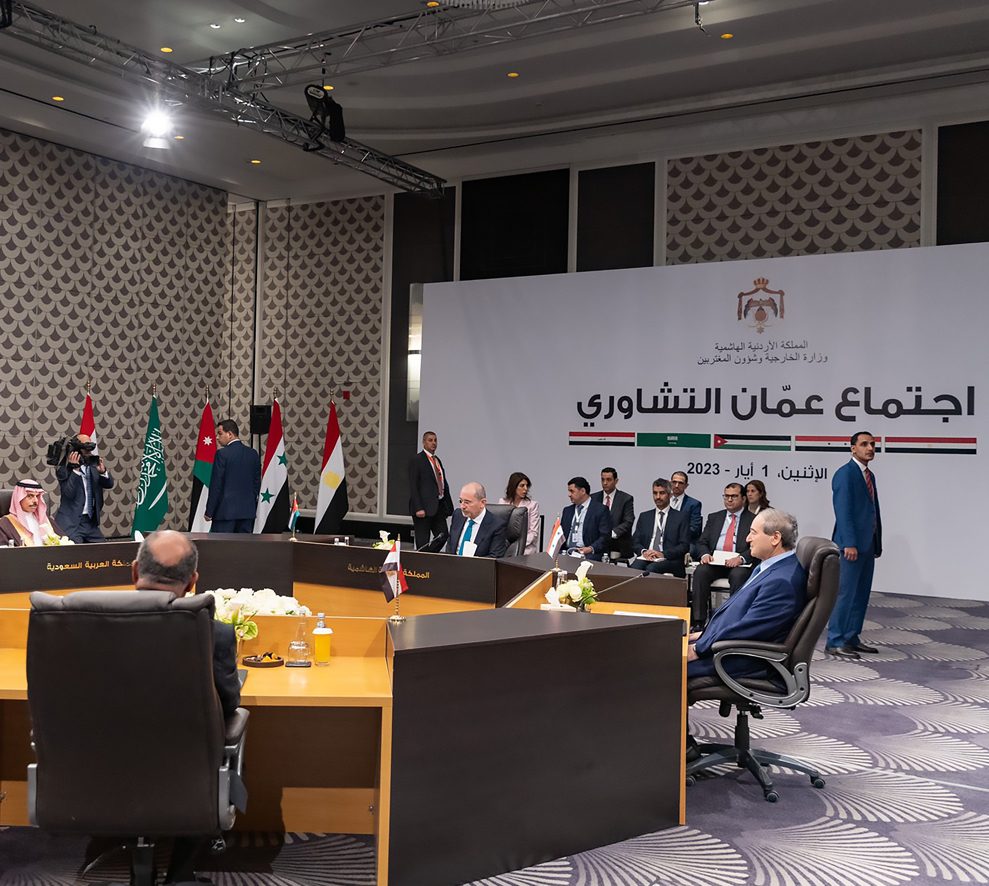
Arab policy
Quid pro quo: Chances of Success for the Amman Consultative Meeting
Position Assessment | On May 1, 2023, the foreign ministers of Jordan, Saudi Arabia, Egypt, Iraq, and Syria convened in Amman for an Arab Consultative Meeting to establish a roadmap for Syria’s reintegration into the Arab world. This position assessment offers an analysis of the Amman Consultative Meeting, evaluating its chances of success in achieving this goal.
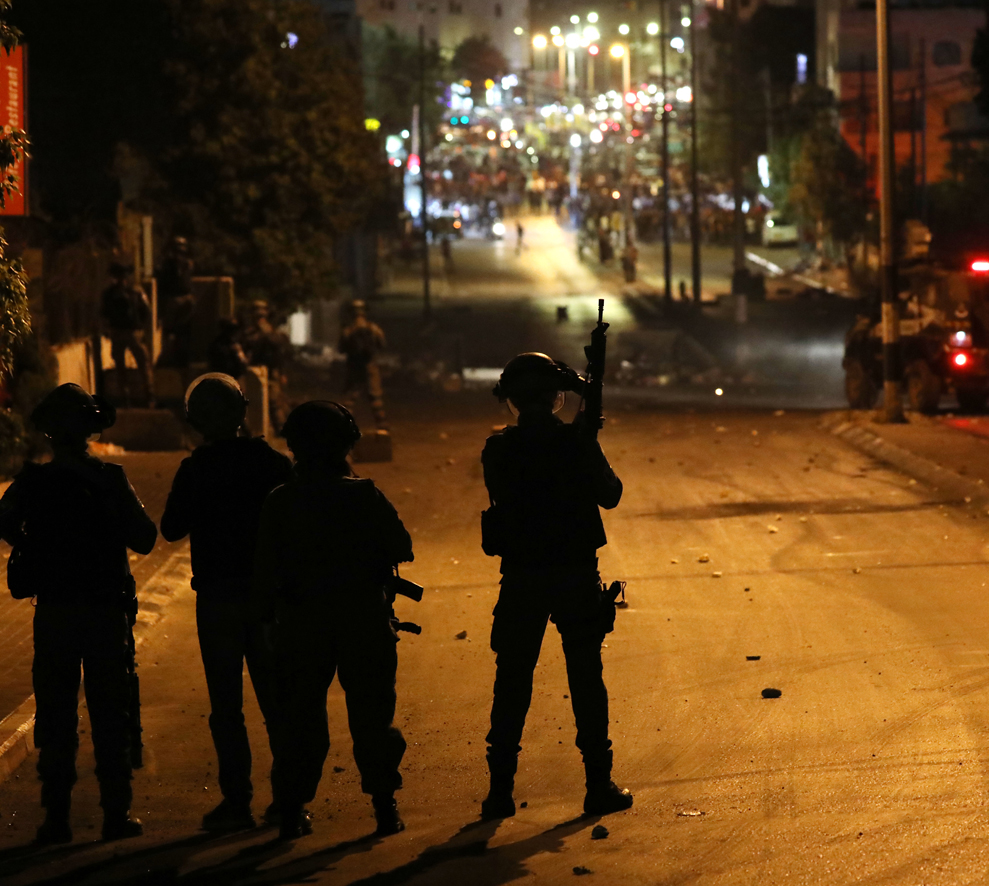
Arab policy
Aqaba and Sharm el-Sheikh Summits: Seeking Limited Achievements with Future Impact
Position Assessment | This assessment examines the Aqaba and Sharm el-Sheikh summits in the context of their timing, field data, and proposed objectives. The parties to these summits hope to achieve limited breakthroughs in Palestinian-Israeli relations that can have positive short- and medium-term impact on the political, economic, and security situations in the West Bank.
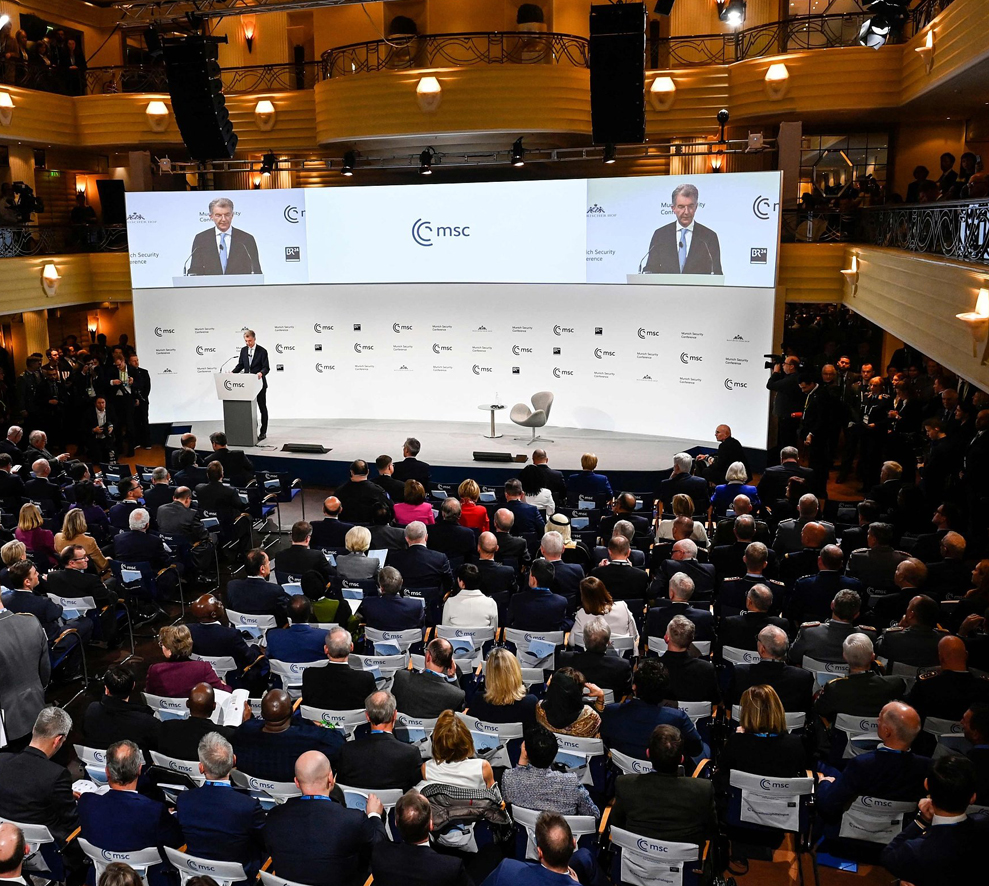
International and Global Trends
Munich Security Conference 2023 and the Crossroads of the Current World Order
Policy Analysis | This analysis discusses the 59th Munich Security Conference, held against the backdrop of several paradoxes at the international level. These paradoxes include the first anniversary of the Ukrainian crisis outbreak, the escalation of tension between China and the United States, the high level of escalation between the two Koreas, and Japan's announcement of a strategic shift in its military doctrine, as well as North Korea's ballistic tests in the surrounding territorial waters of both South Korea and Japan.
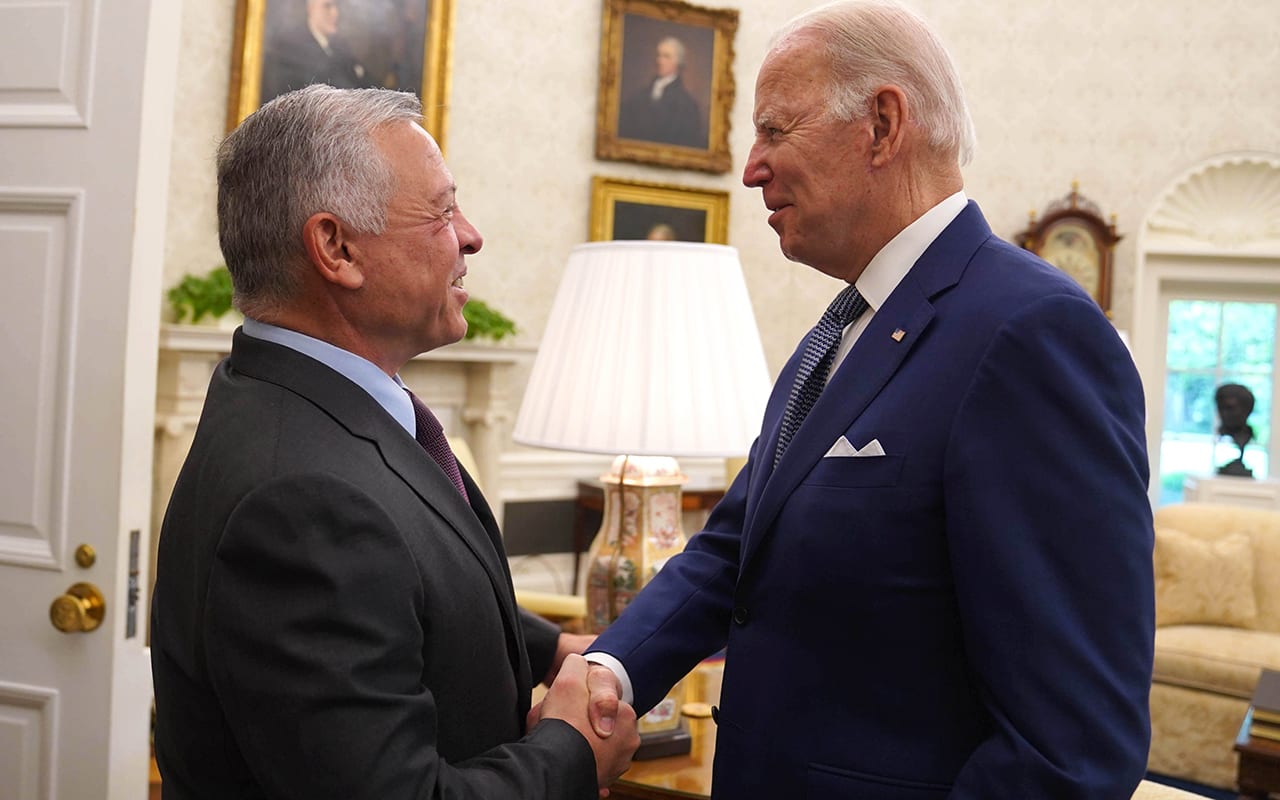
Foreign Policy and Diplomacy
Is the King’s Visit to Washington an Indicator for Increased Jordanian Influence Coefficient?
Situation assessment | This assessment addresses the influence of Jordanian King Abdullah II’s visit to the United States in early February 2023 on important developments in the region, especially in the Palestinian, Iranian, and Israeli arenas.
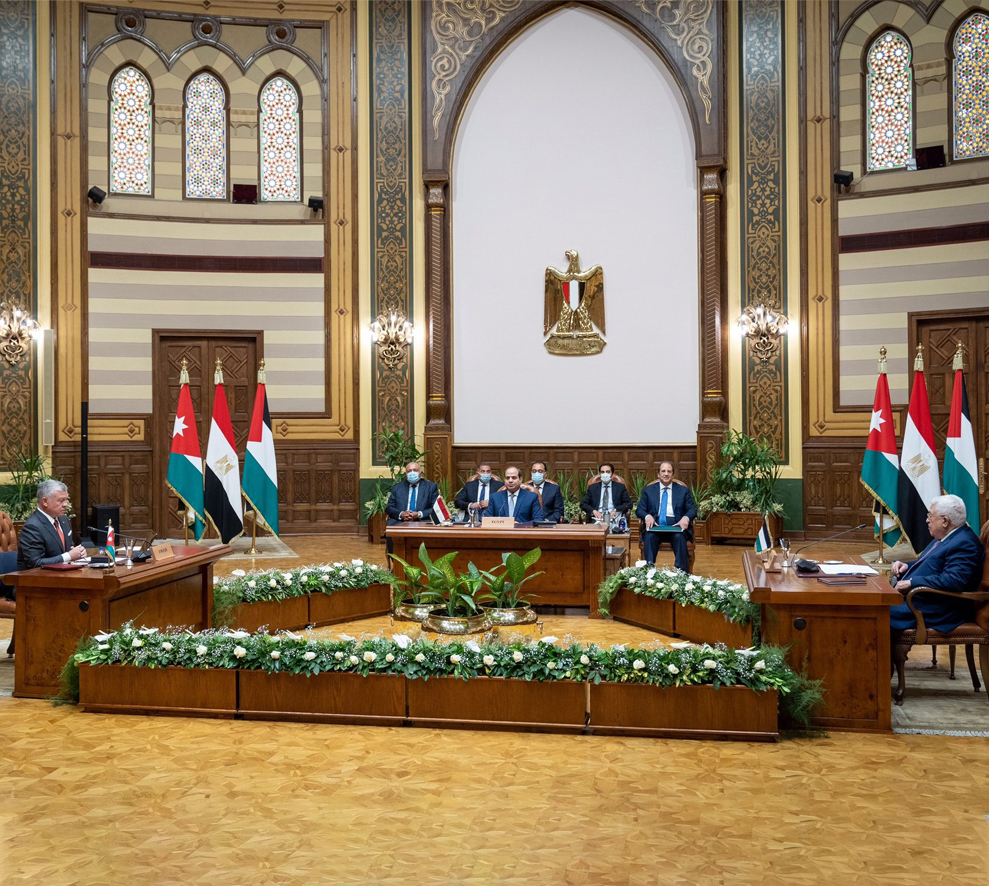
Arab policy
Cairo Tripartite Summit: Challenge and Response
Position Analysis | This analysis addresses the trilateral Summit, held in Cairo, bringing together the presidents of Egypt and Palestine, along with His Majesty King Abdullah II. This assessment also tackles the Summit significance being the first official Arab action after the formation of the new Israeli government. The assessment also addresses the challenges facing Egypt, Palestine, and Jordan.
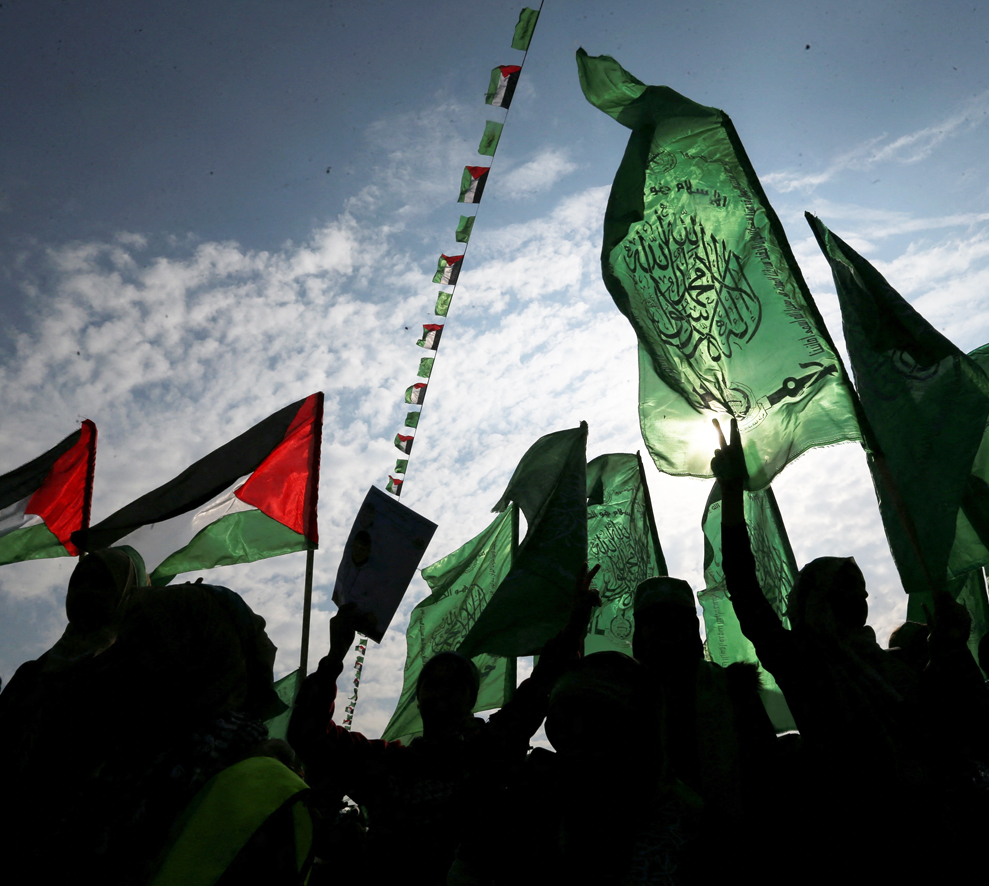
Thirty-Five Years after Founding: Hamas’s Strategic Priorities in a Changing Environment
Policy Analysis | This analysis presents a diagnosis of four Hamas leaders’ speeches, delivered at the Hamas’s 35th anniversary celebrations. The analysis seeks to answer the main question: What messages did leaders’ speeches carry? What positions are they embracing concerning the main challenges and directions of Hamas future track?
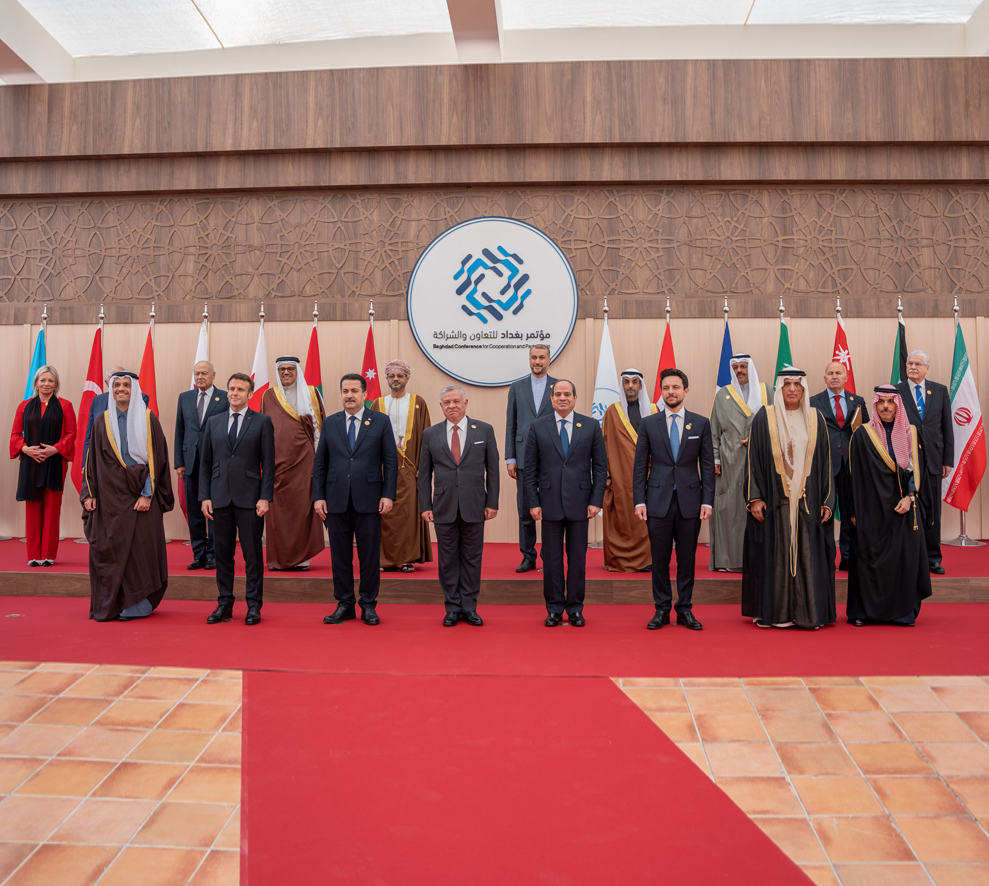
Regional Trends
Baghdad Conference for Cooperation and Partnership 2022: An Important Step in a Long Road
Position Assessment | This paper addresses the Baghdad Conference for Cooperation and Partnership held in the Hashemite Kingdom of Jordan on December 20, 2022, as an extension of its first session held in the Iraqi capital in August 2021 to address regional and international changes in 2022.
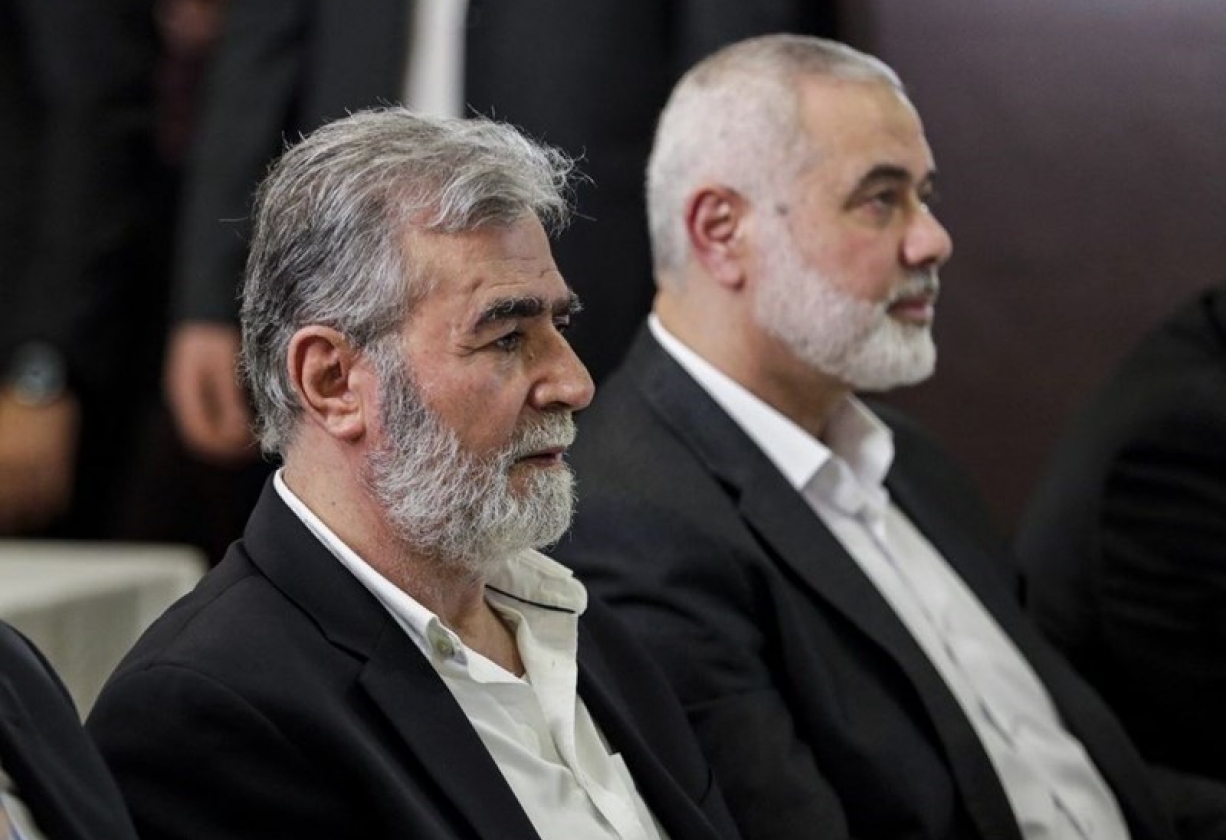
The Grey Relationship between Hamas and Al-Jihad al-Islami
Analytical Article | The article examines the relationship between Hamas and Al-Jihad al-Islami in light of the changes that have affected Hamas’ political track, whether in the Gaza Strip, the regional, or the international levels.
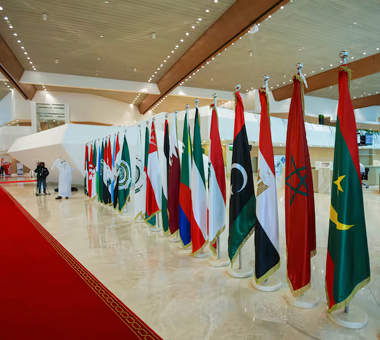
Arab policy
Algeria summit: Important Files and Deep Divisions
Op-ed | This article tackles the thirty-first Arab Summit, held in Algiers on November 1 and 2, 2022, as well as the most important issues on its agenda
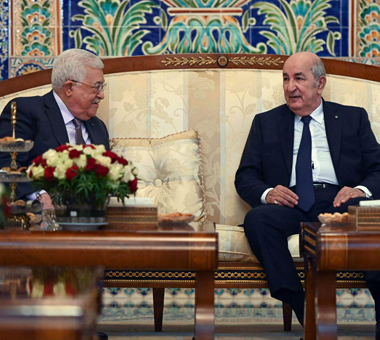
Arab policy
"Algiers Declaration": Faint Chances of Success and Low Expectations
Position Assessment |This paper highlights "Algiers Declaration" signed by the Palestinian factions in Algiers in October 2022, under the auspices of Algerian President Abdelmadjid Tebboune. This paper also addresses the Algerian role in the Palestinian cause, and also the most important principles of the Declaration.
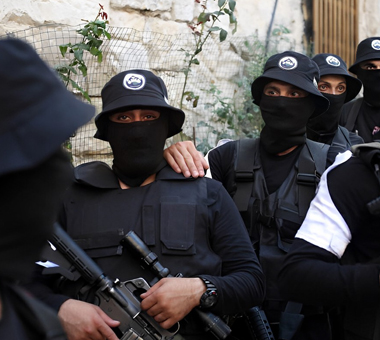
The Palestinian–Israeli Conflict
Areen al-Ousoud Groups to the Forefront after Jenin Battalion
Position Assessment | This paper addresses the phenomenon of small armed groups, such as the Jenin Battalion and the Areen al-Ousoud (Lion’s Den), focusing on the latter that emerged in Nablus. The paper also tackles the repercussions of the increased activity of these armed groups on security and political stability in the West Bank.
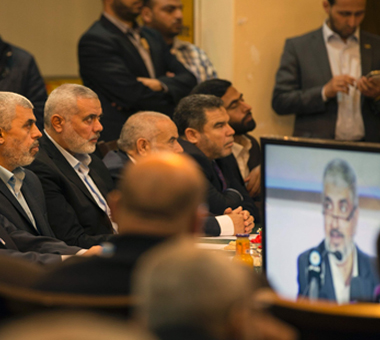
The Palestinian–Israeli Conflict
The Hamas-Damascus Track: One Way or an Intersection of Interests?
Policy Analysis | This paper seeks to provide an analytical reading of Hamas' announcement to resume its relations with Syria after a decade of rupture. It also examines the motives behind the announcement in light of the Hamas's ambitions and the pressures that besiege Hamas the factors and variables leading to this declaration, and the internal problems and external obstacles that it has faced in the past or may face in the future because of it.
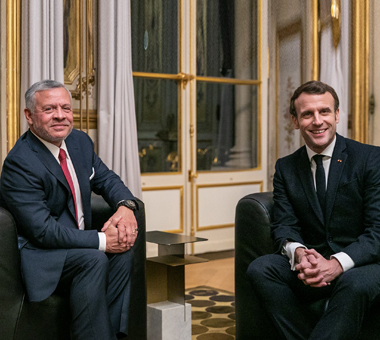
Foreign Policy and Diplomacy
The Visit of His Majesty King Abdullah II to France: Timing and Indications
Position Assessment | This paper addresses the visit of His Majesty King Abdullah II bin Al Hussein to France, on the fourteenth of September 2022, and also the most important issues of common interest.
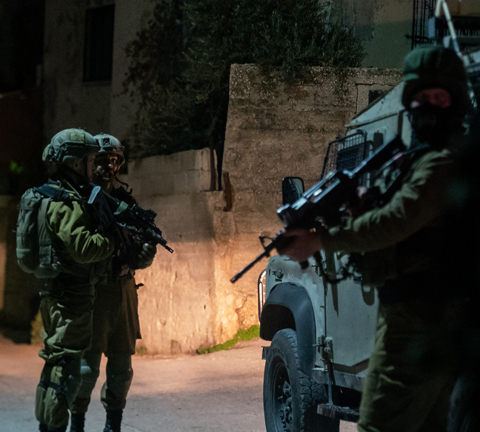
Arab policy
How Does the Political Employment of the Events in the Palestinian Territories Affect Jordan?
Strategic Summary | The accelerating developments, in the Palestinian territories and Israel, impose new repercussions on Jordan, as these developments demonstrate common factors that unite their parties (the Palestinian Authority, the Israeli government, and Hamas) centered on ensuring their political future, and in a way that may establish new understandings that may redefine the concepts of resistance and partnership. this may be negatively reflected on Jordan, politically and economically.
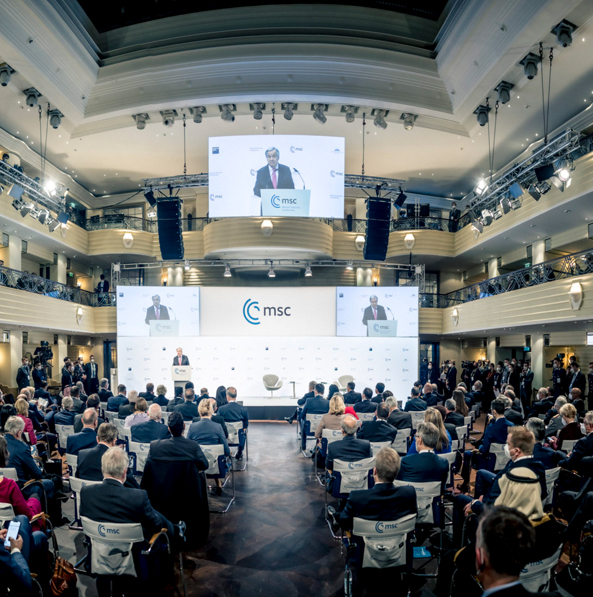
International and Global Trends
Munich Security Conference: The Search for the Missing Security Across the Atlantic
The 2022 Munich Security Conference, the world’s leading forum for debating international security policy, convened amidst a foggy European security situation that dominated its activities: the Ukrainian crisis. While the war has become a reality, has the West succeeded in preparing to deter Russia?
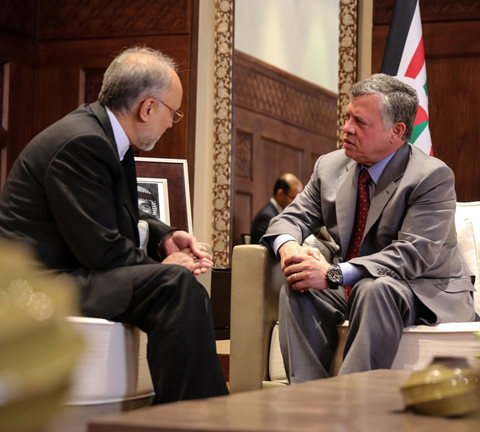
Foreign Policy and Diplomacy
Iran's Attempts to Mend Relations with Jordan: Messages and Variables
The recent Iranian moves in the course of rapprochement with Jordan, call for the assumption that a remarkable development may be witnessed in these relations, driven by several variables and a conciliatory regional climate. Therefore, this paper discusses the motivations for reviving relations, as well as the challenges they face.
.jpg-%D8%A7%D9%84%D8%AF%D9%8A%D9%85%D9%82%D8%B1%D8%A7%D8%B7%D9%8A%D8%A9-%D8%A7%D9%84%D8%B1%D9%82%D9%85%D9%8A%D8%A9.jpg)
Advanced Technology and Artificial Intelligence
Democracy Versus Digital Democracy
The concept of digital democracy has long been addressed as a means by which democratic practices are integrated with newest technology tools, at a time when traditional practices are facing several challenges. The following article reviews the concept and applications of digital democracy and the imbalance in reconciling it with the concept of digital securitization.
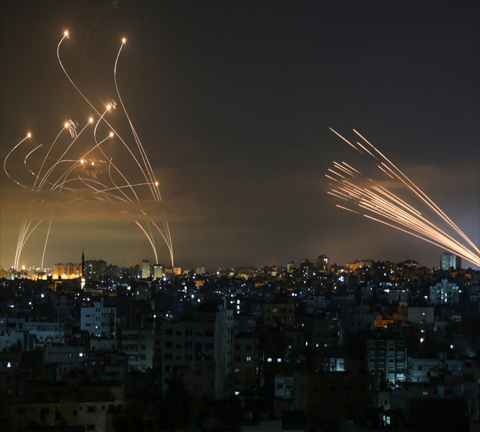
Emerging Threats and Non-Traditional Security
Hybrid Warfare and Bets of Victory and Defeat
The following article reviews the reality of the hybrid war between Israel and the Palestinian armed factions, taking the recent war in the Gaza Strip as an example, to demonstrate the importance of political dimensions as a long-term goal, and to highlight the economic and military damage suffered by the two parties as a secondary goal through which changes and the development of tools and deterrence in such a type of war are measured. The article relies on the findings of the literature and theories that dealt with these wars in their scientific and academic form based on objectivity.

Opinion and Thought
Covid-19 in an Age of Risk
In an age of risk, we tend to ruminate upon the negative effects of our decisions and always find ourselves driven to make a computational relationship between the future and the present. What role has Covid-19 pandemic played in augmenting such state?
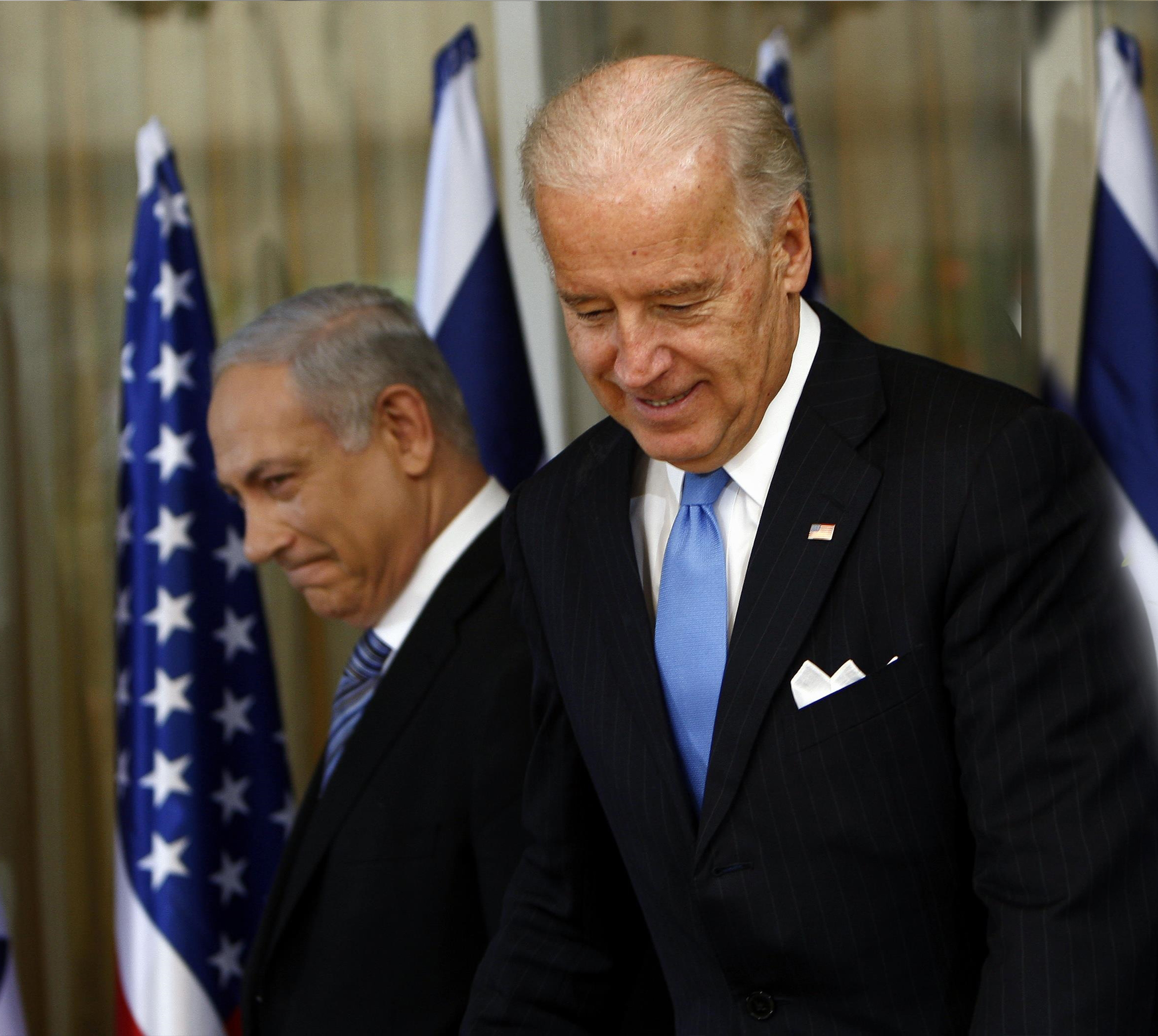
Opinion and Thought
Biden-Netanyahu Relationship as Described in A "Promised Land"
This article tackles the nature of the relationship between US President-elect, Joe Biden, and Israeli Prime Minister, Benjamin Netanyahu, in light of the presidential memoirs of Barack Obama, A Promised Land, in which he narrates the most prominent stations of his life and devotes a good deal of space to speak about the Biden-Netanyahu relationship based on his involvement with the latter.

Regional Trends
Iraqʹs Return to the Regional Arena: Possibilities and Opportunities
In light of the development in Iraq in recent years, especially at the level of security, political level, and oil production, and amid transformations in the Arab and regional arenas in the context of Arab-Iranian relations, this report addresses relevant questions; Is it possible for Iraq in the upcoming period to return to its influential role in the balance equation at the Gulf, Arab and regional levels? does it possess the elements needed for this role and the willingness to practice it? What are the obstacles standing in the way of Iraq’s return to the regional and international arenas?
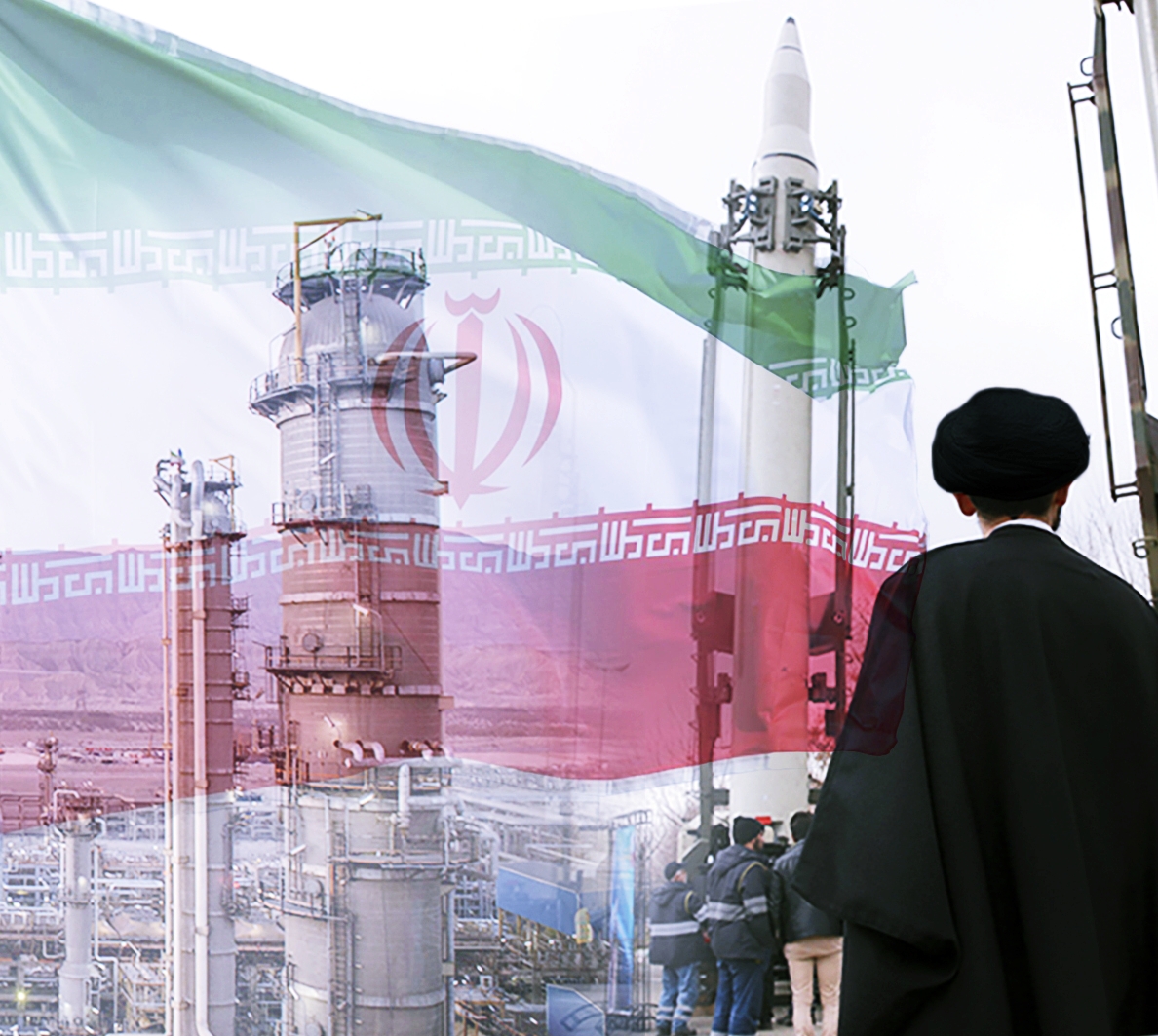
Regional Trends
Timeline of Iran's Nuclear File (1957-2019)
This article presents a timeline of the major developments in the Iranian Nuclear file across several stages, from early 1957 until July 21, 2019; it proposes future scenarios and forward-looking insights for the future course of events at the end of the timeline. The article discusses key topics, including the anticipated military confrontation between the U.S. and its allies and Iran; Iran's enhancement of its military and geostrategic capabilities used in its proxy war in the Middle East; and Iran's relationship with the International Atomic Energy Agency (IAEA).
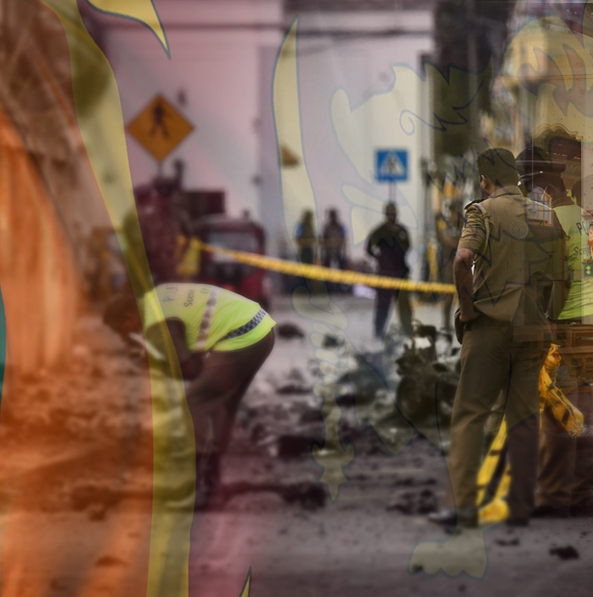
Countering Terrorism and Extremism
Sri Lanka Attacks: Terrorism on the Basis of Sectarian and Ethnic Conflict
This article looks into "high-tech" and "advanced" terrorist attacks in Sri Lanka amid internal sectarian divisions and discusses why Sri Lanka is considered an incubating environment for terrorism.
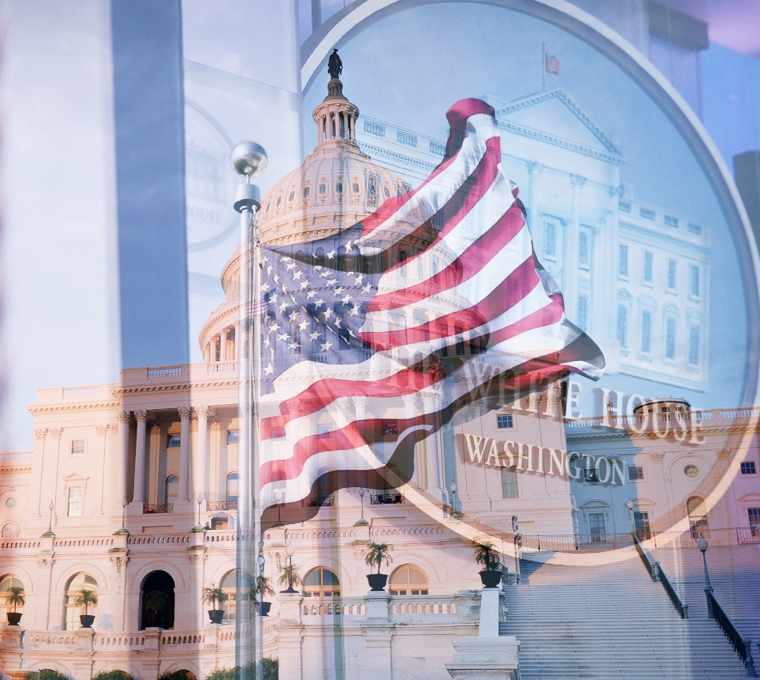
Foreign Policy and Diplomacy
The U.S. Foreign Policy
Does the United States, represented by President Trump’s decisions, rely on a realistic strategy that shows the U.S. course of action, opportunities, strengths, and threats? This question has become most significant after President Donald Trump took office in January 2017 and began to announce his decisions and directions. This article, therefore, discusses several justifications and analyses for the existence of a clear U.S. strategy.
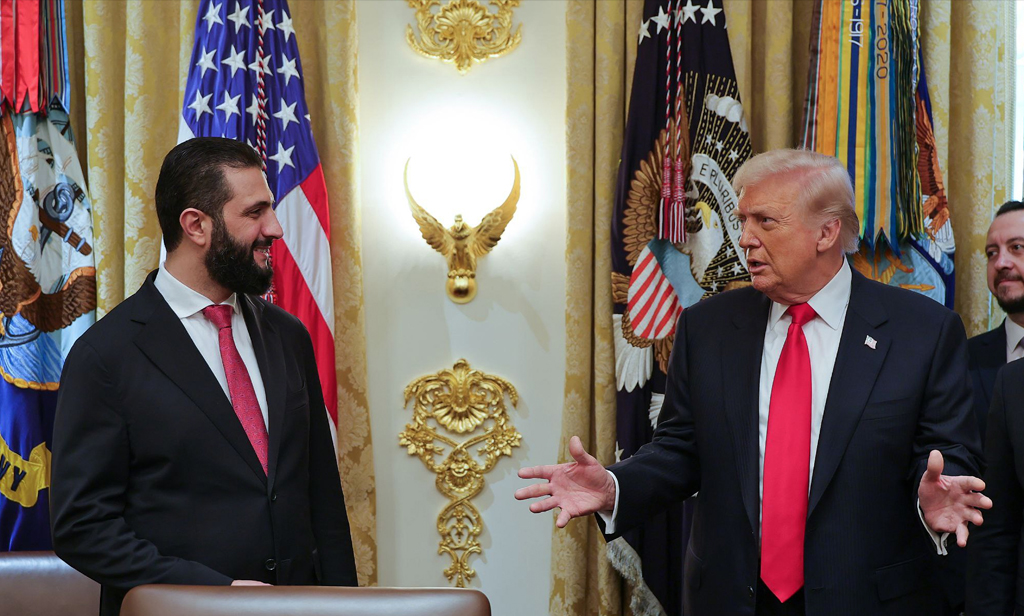
International and Global Trends
Real clear world: A former terrorist inside the white house
This article examines the unprecedented decision to welcome a former jihadist—long designated as a terrorist by the United States—into the White House. It traces his trajectory from al-Qaeda operative to interim president of Syria, raising urgent questions about a dramatic shift in U.S. foreign policy. The piece challenges readers to consider the consequences of legitimizing a figure whose past is inseparable from decades of extremist violence.
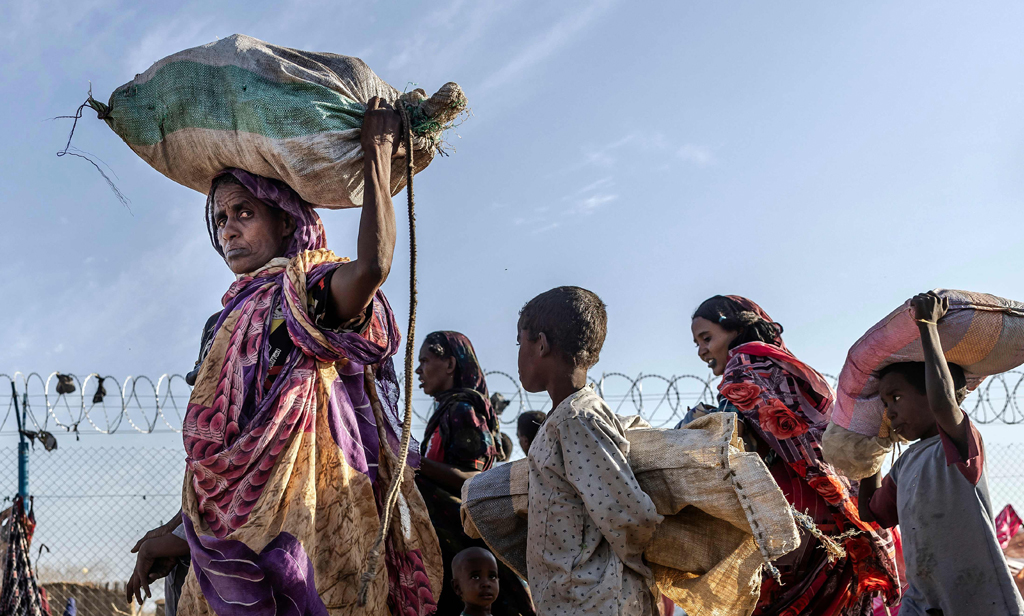
Countering Terrorism and Extremism
Sudan: The Country Hijacked by Islamists and Targeted for Burial by Iran
This story documents firsthand testimonies from individuals within Sudan who are well-informed about the increasing Iranian influence in their country. We refer to them as "Al-Hajj," "The General," and "The Diplomat" to protect their identities and ensure their safety. These individuals unanimously expressed concerns in their testimonies about the dangers of Iranian influence on their country's future stability, the prospects for a ceasefire between the conflicting parties.
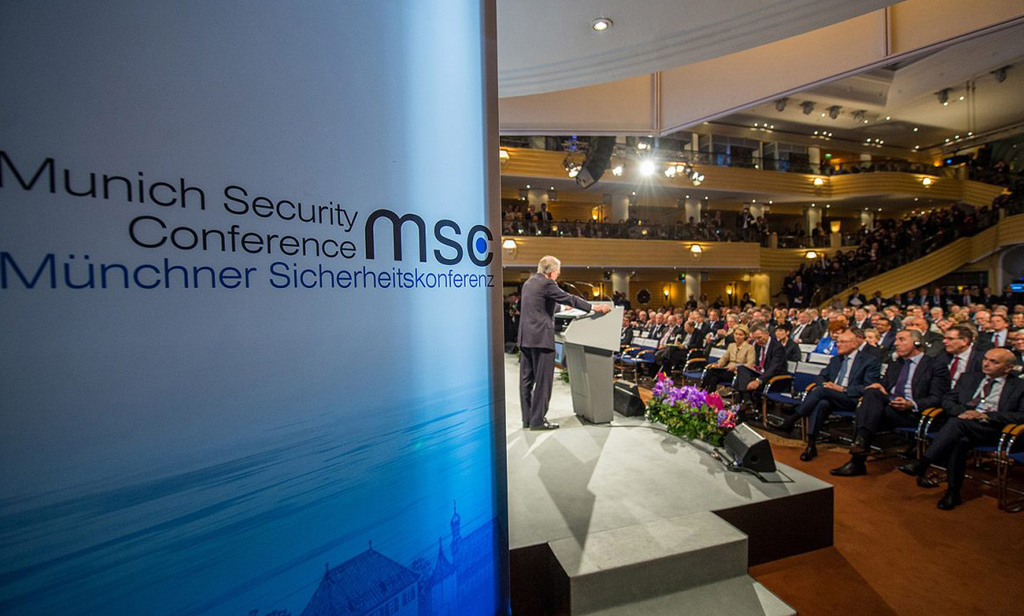
Security and Defence
Munich Conference and the Changing European Security Landscape
This analytical paper examines the changing security landscape in Europe with the outbreak of the Ukrainian-Russian crisis, which dominated discussion and statements at the Munich Security Conference 2022, in an attempt to deliver a unified Western message to deter Russia. As the war has become a reality and the West continues to show a united position, this paper seeks to examine the consequences of the geopolitical realities in Europe and their effects on the global system, in light of Russia's moves in the field and the deterrent decisions by the West.

Regional Trends
Iraqʹs Return to the Regional Arena: Possibilities and Opportunities
In light of the development in Iraq in recent years, especially at the level of security, political level, and oil production, and amid transformations in the Arab and regional arenas in the context of Arab-Iranian relations, this report addresses relevant questions; Is it possible for Iraq in the upcoming period to return to its influential role in the balance equation at the Gulf, Arab and regional levels? does it possess the elements needed for this role and the willingness to practice it? What are the obstacles standing in the way of Iraq’s return to the regional and international arenas?
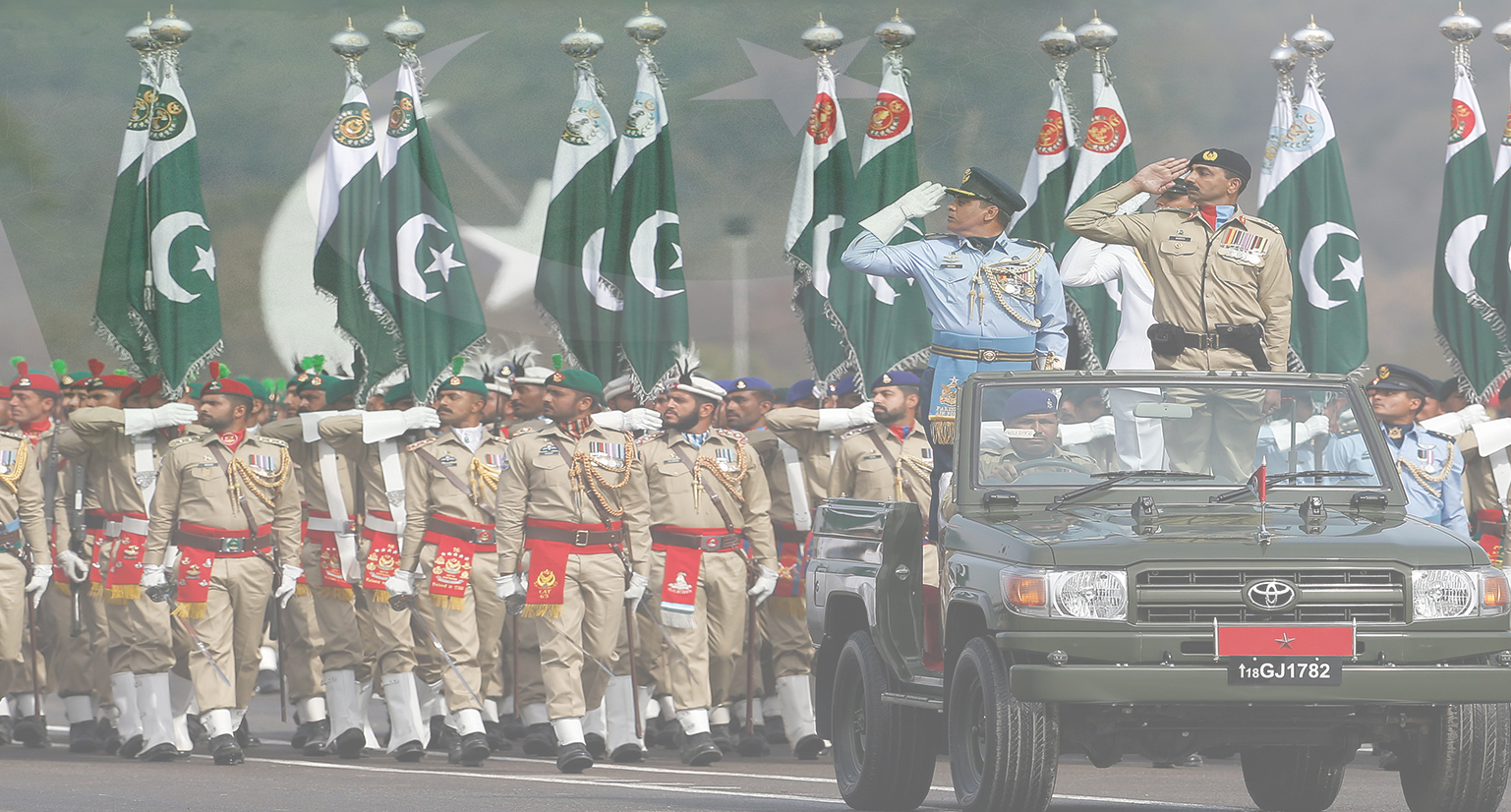
International and Global Trends
Can Pakistan Be a Regional Counterbalance?
This paper discusses Pakistan’s recent endeavors to position itself as a sovereign state with central importance in balancing the Greater Middle East. This is evident by the country's efforts to combat terrorism and achieve progress in developmental, economic, and military fields in spite of the major challenges, both at the internal and external levels. In its reference to the new Prime Minister Imran Khan, who arose as a popular reformist leader, the paper highlights the principles of his strategy as well as the military aspect of Pakistan. Pakistan’s foreign relations with other regional countries were also examined in addition to the role Pakistan plays in these countries.
We use cookies to ensure the proper functioning of our website. For an improved visit experience we use analysis products. These are used when you agree with "Statistics".